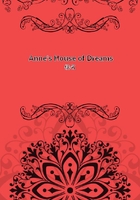Petrarch, who lives in the memory of most people nowadays chiefly as a great Italian poet, owed his fame among his contemporaries far rather to the fact that he was a kind of living representative of antiquity, that he imitated all styles of Latin poetry, endeavored by his voluminous historical and philosophical writings not to supplant but to make known the works of the ancients, and wrote letters that, as treatises on matters of antiquarian interest, obtained a reputation which to us is unintelligible, but which was natural enough in an age without handbooks.
It was the same with Boccaccio.For two centuries, when but little was known of the 'Decameron' north of the Alps, he was famous all over Europe simply on account of his Latin compilations on mythology, geography and biography.One of these, 'De Genealogia Deorum,' contains in the fourteenth and fifteenth books a remarkable appendix, in which he discusses the position of the then youthful humanism with regard to the age.We must not be misled by his exclusive references to 'poesie,'
as closer observation shows that he means thereby the whole mental activity of the poet-scholars.This it is whose enemies he so vigorously combats--the frivolous ignoramuses who have no soul for anything but debauchery; the sophistical theologian, to whom Helicon, the Castalian fountain, and the grove of Apollo were foolishness; the greedy lawyers, to whom poetry was a superfluity, since no money was to be made by it; finally the mendicant friars, described periphrastically, but clearly enough, who made free with their charges of paganism and immorality.Then follows the defence of poetry, the praise of it, and especially of the deeper and allegorical meanings which we must always attribute to it, and of that calculated obscurity which is intended to repel the dull minds of the ignorant.
And finally, with a clear reference to his own scholarly work, the writer justifies the new relation in which his age stood to paganism.
The case was wholly different, he pleads, when the Early Church had to fight its way among the heathen.Now--praised be Jesus Christ !--true religion was strengthened, paganism destroyed, and the victorious Church in possession of the hostile camp.It was now possible to touch and study paganism almost _(fere) _without danger.This is the argument invariably used in later times to defend the Renaissance.
There was thus a new cause in the world and a new class of men to maintain it.It is idle to ask if this cause ought not to have stopped short in its career of victory, to have restrained itself deliberately, and conceded the first place to purely national elements of culture.No conviction was more firmly rooted in the popular mind than that antiquity was the highest title to glory which Italy possessed.
There was a symbolical ceremony peculiar to the first generation of poet-scholars which lasted on into the fifteenth and sixteenth centuries, though losing the higher sentiment which inspired it--the coronation of the poets with the laurel wreath.The origin of this custom in the Middle Ages is obscure, and the ritual of the ceremony never became fixed.It was a public demonstration, an outward and visible expression of literary enthusiasm, and naturally its form was variable.Dante, for instance, seems to have understood it in the sense of a halfreligious consecration; he desired to assume the wreath in the baptistery of San Giovanni, where, like thousands of other Florentine children, he had received baptism.He could, says his biographer, have anywhere received the crown in virtue of his fame, but desired it nowhere but in his native city, and therefore died uncrowned.From the same source we learn that the usage was till then uncommon, and was held to be inherited by the ancient Romans from the Greeks.The most recent source to which the practices could be referred is to be found in the Capitoline contests of musicians, poets, and other artists, founded by Domitian in imitation of the Greeks and celebrated every five years, which may possibly have survived for a time the fall of the Roman Empire; but as few other men would venture to crown themselves, as Dante desired to do, the question arises, to whom did this office belong? Albertino Mussato was crowned at Padua in 1310 by the bishop and the rector of the University.The University of Paris, the rector of which was then a Florentine (1341), and the municipal authorities of Rome, competed for the honour of crowning Petrarch.His self-elected examiner, King Robert of Anjou, would have liked to perform the ceremony at Naples, but Petrarch preferred to be crowned on the Capitol by the senator of Rome.This honour was long the highest object of ambition, and so it seemed to Jacobus Pizinga, an illustrious Sicilian magistrate.Then came the Italian journey of Charles IV, whom it amused to flatter the vanity of ambitious men, and impress the ignorant multitude by means of gorgeous ceremonies.Start- ing from the fiction that the coronation of poets was a prerogative of the old Roman emperors, and consequently was no less his own, he crowned (May 15, 1355) the Florentine scholar, Zanobi della Strada, at Pisa, to the great disgust of Boccaccio, who declined to recognize this 'laurea Pisana' as legitimate.Indeed, it might be fairly asked with what right this stranger, half Slavonic by birth, came to sit in judgement on the merits of Italian poets.But from henceforth the emperors crowned poets wherever they went on their travels; and in the fifteenth century the popes and other princes assumed the same right, till at last no regard whatever was paid to place or circumstances.In Rome, under Sixtus IV, the academy of Pomponius L'tus gave the wreath on its own authority.















